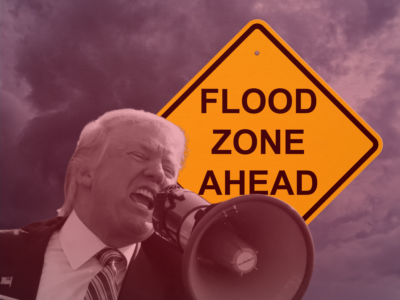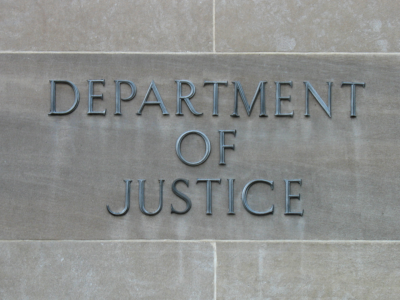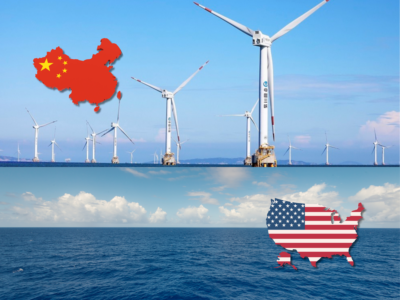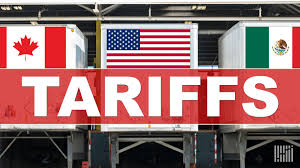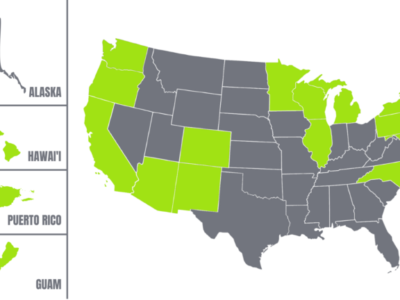Why I Still ♥ IRA
Biden’s climate law has already had a dramatic impact.
This isn't just a passing fancy -- I've felt this way since August 2022, when Congress passed IRA, the Inflation Reduction Act. Some Republicans have sworn to repeal it entirely, but they seem unlikely to succeed. Even if they do, they can’t wipe out the impacts IRA has already made, including over half a trillion dollars in new investment in clean tech. Let me start by hitting you with some numbers, more specifically, some really big numbers. An August 2024...
CONTINUE READINGThe Economics of Civil Service Abolitionism
Would elimination of civil service protection increase government efficiency? Probably not.
Trump’s rebranded Schedule F is an effort to strip government workers who have any involvement in policymaking of their civil service statute in the name of efficiency. Many people doubt that efficiency is the real motive, but even if it is, Schedule F could easily make the government less efficiency rather than more. It may seem obvious that people will work harder and more intently – and therefore more efficiently – if they face the risk of losing their jobs....
CONTINUE READINGA Trumped-Up Energy Emergency
We have weathered past threats to energy security through democratic processes, not by executive fiat.
This guest post was written by Joseph Tomain and Bryan Dunning. Tomain is Dean Emeritus and the Wilbert & Helen Ziegler Professor of Law at the University of Cincinnati College of Law. Dunning is a senior analyst at the Center for Progressive Reform. On January 20, 2025 — otherwise known as Day One of Trump 2.0 — the president signed a barrage of Executive Orders, including one declaring a national energy emergency. While it is unsurprising that his policy...
CONTINUE READINGThink Globally, Act Locally – Personal Environmental Action in the Era of Trump 2.0
AKA it should be much easier to put in a heat pump water heater.
The chaos of Trump 2.0 is making it difficult to think about affirmative environmental action these days. At the policy level and in the courts, environmentalists are going to be playing defense for the next few years. Much of what is going on these days feels beyond the average person’s control and that can be cause for feelings of hopelessness or despair. If you are committed to improving our environment though, there are still many actions one can take at a personal...
CONTINUE READINGPresidential Blitzkrieg: Good Tactics, Questionable Strategy
Flooding the zone has short-term benefits but possible long-term costs.
In the first two weeks of his administration, President Trump issued a flood of executive orders. Many of those actions relate to energy and the environment, with the general intent of handicapping clean energy and promoting fossil fuels. Flooding the zone has undoubtedly helped him dominate the news and may have stunned opponents. But short-term success doesn’t always translate into long-term gains. The short-term benefits are very real. Trump’s initial acts ...
CONTINUE READINGA Disinformation Deluge on California Policies
Trump and House Republicans are trying to ‘flood the zone’ when it comes to wrongly blaming California environmental regulations for the LA fires.
Trump’s longtime strategy of ‘flooding the zone” — aka overwhelming opponents with a flurry of announcements and superficial initiatives — took a literal turn last week, when his administration ordered the release of a significant amount of water from two dams in the Central Valley to try to score political points. As the New York Times reported, the water dump won’t do anything to serve the supposed policy objectives — to help Southern California fi...
CONTINUE READINGCrisis at DOJ’s Environment & Natural Resources Division
Guest contributors Sommer Engels, Andrew Mergen, and Justin Pidot write that dismantling ENRD will be disastrous for future administrations, the American people, and even for the Trump Administration.
The Environment and Natural Resources Division (ENRD) of the Department of Justice faces its most profound crisis since it was established in 1909. In a little over a week, the Trump administration has (1) reassigned four career managers (leading nearly half of ENRD’s sections) to the newly formed Office of Sanctuary Cities Enforcement; (2) placed career attorneys working in ENRD’s Office of Environmental Justice on administrative leave; (3) suspended the nearly 75-y...
CONTINUE READINGTrump’s Offshore Wind Ban vs. China’s Wind Juggernaut
Why is the Trump administration kneecapping the U.S. offshore wind industry while China becomes a global giant?
This January, when I was in Beijing for a workshop at Tsinghua University on offshore wind, presentation after presentation from Chinese experts revealed just how China has become an absolute juggernaut in offshore wind. Professors from the Chinese Academy of Social Sciences and Tsinghua walked us through the governance structure — state planning, targets, industrial policy, and legal frameworks — that have allowed China to build an impressive vertical supply chai...
CONTINUE READINGTariffs and Clean Energy: What You Need to Know
The effect of tariffs on energy markets is complex, and a lot depends on the details.
“Tariffs are the most beautiful word to me,” enthuses Donald Trump. The tariffs on Mexico, Canada, and China that he imposed today may well turn out to be the policies with the largest impact on the economy, including energy markets. They could hold back clean technology in the U.S, as well as harming other industries. But a lot depends on the details and the responses of exporting countries. The Economics of Tariffs Economists generally believe that ta...
CONTINUE READINGThe Green-State Playbook
Here are five ways states can save climate policy despite Trump.
Nearly half of U.S. states, with more than half the U.S. population, have made climate pledges. Trump’s election is a body blow to U.S. climate policy, but there are ways that those states can fight Trump and, importantluy, also move forward on their own plans. I’ve posted a new paper on states as havens for climate policy. The paper goes into a lot more detail about the strategies and legal issues. But to cut to the chase, here are five key strategies for green ...
CONTINUE READING







